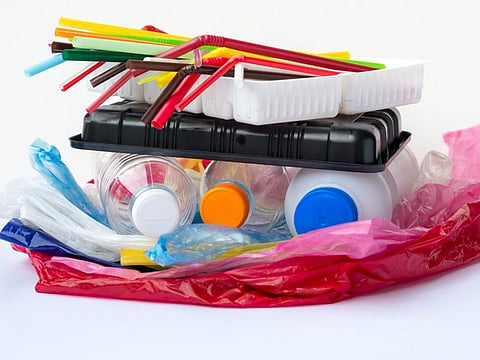How UAE is becoming a more eco-friendly place
How individuals and changemakers are making the UAE a more eco-friendly place

It was a few years ago that Dubai resident Supatra, while reading a feature on eco-pollution, learnt that plastic takes 500 years to decompose. ‘To say I was shocked would be an understament,’ she says. ‘It was also a wake up call of sorts.’
She began reading up more about how she in her own way could save the planet from the scourge of single-use plastics. ‘I set my mind to de-clutter and eliminate plastic from our home and have become a crusader of all things green ever since.’ If once upon a time leftover food was stored in plastic bags or boxes, now she uses glass food storage containers or metal cooking vessels. She also carries along reusable grocery bags whenever out shopping. Her kids too have become eco-conscious as ‘they prefer to use stainless-steel water bottles’, she says.
Over the past several years, she has eliminated, and is avoiding using, single-use plastics as far as she can. ‘This personal transformation was simply amazing! It made me feel good and our home now feels more natural,’ says Supatra, a homemaker and teacher who has also been conveying this message to her students as often as she can.
She is all in praise of the UAE Government’s aim to ban single-use plastic bags completely in two years. ‘Supermarkets across the UAE are now offering various alternatives and it is a true testament to how we are all growing into a more responsible society,’ adds Supatra.
Exciting times are ahead as the UAE will once again lead the way towards achieving sustainability and encouraging global cooperation to address environmental issues. The recently concluded Dubai Expo opened avenues where the world witnessed how a world-class programme can still be successful and achieve fruition in its sustainability agenda.
The next year, 2023, will be no different as the UAE gears up to host the Conference of Parties (COP 28) to the United Nations Framework Convention on Climate Change (UNFCCC).
This clearly will underscore the importance the UAE is giving to making the world a better place to live in.


‘We know that this is a major behaviour shift that we are demanding of our customers, so we want to ensure that we ourselves are following suit internally. This is the beginning of our commitment to leading the region towards a circular economy approach that reduces resource consumption and adds value,’ he adds.

This sustainable packaging material is a lot more expensive than plastic. ‘But it is our commitment to the environment that is seeing us through,’ he says. ‘I must admit that ever since our company made a conscious decision to go all out on sustainable and natural offerings, we are attracting a new set of customers who are aligned with our offerings of authentic taste, natural flavours and environmental friendliness. We are witnessing higher growth potential with so many companies approaching us for event partnerships. This is helping us immensely in building ourselves as a sustainable and responsible brand,’ says Mazen.

A company has been set up to promote biodegradable and compostable products and ensure that the UAE becomes net zero by 2050, which will make the country the first across the Middle East and North Africa to reach such a mark. This is the first natural drinking straw in the world with a patent that has been made entirely from a fallen coconut leaf. With a 12-month shelf life, this straw has also been designed in a manner that makes it easy to pierce, which makes it a viable option for tetra pack manufacturers as well.

‘Engaging with our community encourages a sense of ownership for responsible citizens who can contribute to the bigger cause of environmental awareness.’ The company currently recycles 720 million bottles per year (nearly a fifth of plastic bottles used annually in the UAE), thus diverting a significant amount of waste that would otherwise enter the waters around the region.




